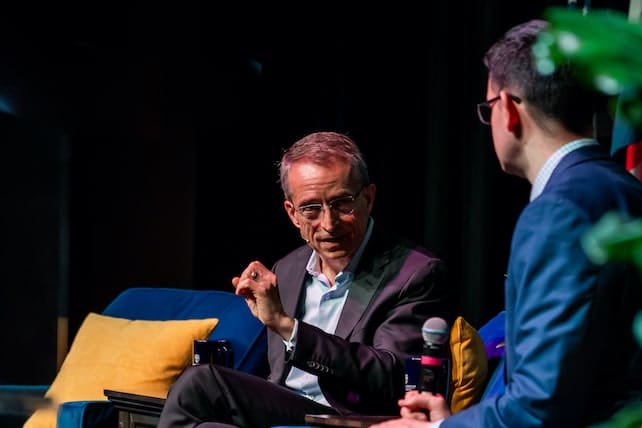“I challenge us as a faith community to run to AI and to be using it as a force for good,” concluded Gelsinger. He urged Christians to use AI every day, ask it “stupid questions,” and talk to others about AI. “Use it to translate, educate, and maximize your knowledge and time.”
During a Q&A session, Gelsinger said AI will “raise the bar” for all people—as long as we build values into the systems. For example, benchmarks can ensure that a suicidal person uses AI to find a human counselor, not to learn how to tie a noose.
Key factors include entering curated data into the system, ensuring that systems are released only when they’re ready for human experience, and regulating systems after we know how they’re being used. “And we need faith leaders as part of the teams overseeing all that,” Gelsinger said. Safeguards must be in place, and Christians “must demand the sovereignty of human life.”
Although AI will replace some human tasks and change some jobs, it won’t replace the human experience, Gelsinger said. “We need to bring people into relationships with others and with God. That’s part of shaping AI for good.”
Gloo Execs Address Ways To ‘Redeem Technology’
Gloo AI President Steele Billings and Gloo Developers Vice President Nick Skytland discussed some faith dilemmas that AI presents—and their company’s calling to “make AI faithful.” Instead of settling for the world’s version of AI, they said, followers of Jesus must help create AI that points to God’s design as our Creator.
RELATED: Pastors, Don’t Let Your Fear of AI Cause You To Miss This Moment, Say Experts
Emerging technologies have an incentive, Billings and Skytland noted, and because the incentive of social media was to maximize engagement, “humanity lost.”
Instead of connecting humanity in mostly positive ways, social networks led to information overload, addiction, the sexualization of children, doom scrolling, fake news, polarization, and the breakdown of democracy. With AI, they said, we must watch out for synthetic relationships, “automated fake religion,” cyberweapons, and the collapse of reality and trust.
AI without safeguards puts personal safety and spiritual growth at risk, explained Billings and Skytland. For example, they warned about AI hallucinations that misquote Scripture and AI output that flattens theology into “vague moral advice, ignoring the depth of doctrine built over centuries.” By contrast, “values-aligned AI” can nurture people’s faith, work, relationships, communities, and trust.

